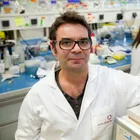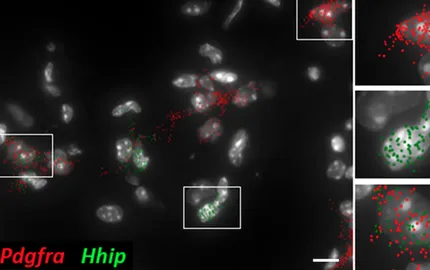- Home >
- Units research >
- Signaling, radiobiology and cancer (UMR3347 / U1021)
Presentation

The cornerstone of our unit’s research thematic is its integrative view of molecular and cellular knowledge in a physiopathological context, ultimately favoring the development of innovative treatments for cancer. The unit, located on the Orsay site of the Institut Curie Research Center, has a significant critical mass, and the focusing of its interests on a main axis of research lead to the development of synergy and foster innovation and creativity
Our department has a strong commitment for the understanding of the molecular signaling during embryonic development and cancers derived (for eample) from neural crest cells namely melanoma.
Our project involves seven research teams, working on five axes:
- Genetics approaches of signal transduction pathways from normal to pathological conditions;
- Development and homeostasis of cell lineages: Autonomous and non-autonomous signaling;
- Relevant Animal models for human cancer studies;
- Innovative therapeutical approaches for cancer treatments;
- New Approaches in Radiotherapy.
Current biological approaches are generating high-throughput data in several domains (genomics, transcriptomics, proteomics), but provide only a snapshot of a complex state. At the same time, biological approaches are becoming increasingly quantifiable. Dynamic model systems, representing a continuum from in vitro conditions to the organism level, are required to make appropriate use of these informations. It is clear that no model can, on its own, summarize all the complexities of the molecular change that contribute to cancer. Consequently, several different animal models are used (in compliance with national and international ethical rules), depending on the questions to be addressed.
The teams of our unit concentrate essentially on the genetics of signal transduction pathways, through the development of complementary approaches. By using these model systems, as well as xenografted human tumors genetically characterized, we should be able to define and to validate new treatments, by modifying or making use of the functions studied for therapeutic purposes. These approaches have been successfully illustrated by the set-up of a clinical trials using innovative molecular therapy in combination with radiotherapy to treat local metastasis of melanoma.

















